What happens to my sleep and recovery when I’m under heavy stress and anxiety? This is an important topic as stress and anxiety are common problems in modern society.
One particular and recurrent event spiked my stress levels. It was Tuesdays; I had an improv class in the evenings.
I have been practicing improv for a few years. I have a love-hate relationship with improv, it’s mentally taxing and challenging, but there is also a great reward for challenging yourself. Some of us have been genetically wired to feel more nervous when performing or speaking in public – I’m one of those!
What happens to my body during improv class, and how can we quantify stress? Let’s say that improv class is ongoing, and it’s my turn to perform (without a script, that’s why it’s called improv). My heart is pounding, and my mouth is dry. This is due to cortisol, adrenaline, noradrenaline, which are flowing through my body. We can illustrate this from Garmin watch data with the following examples:
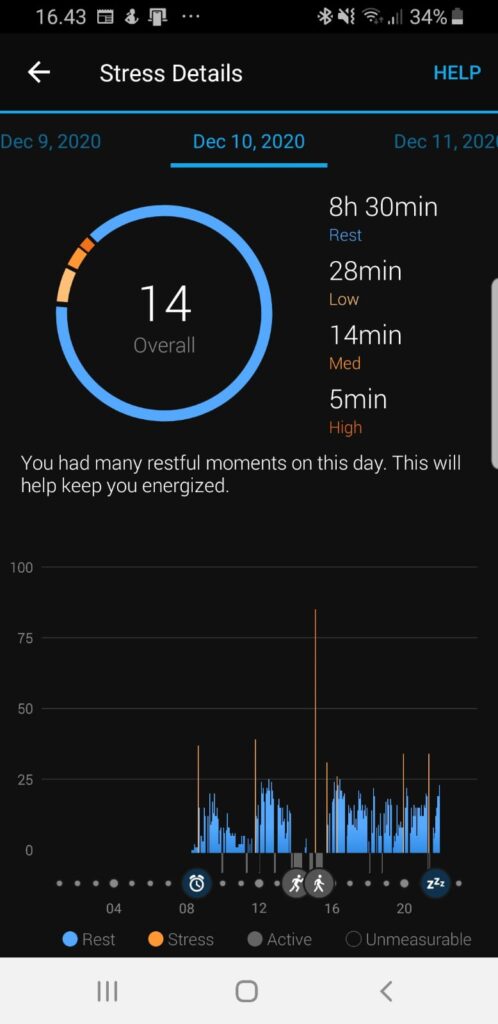
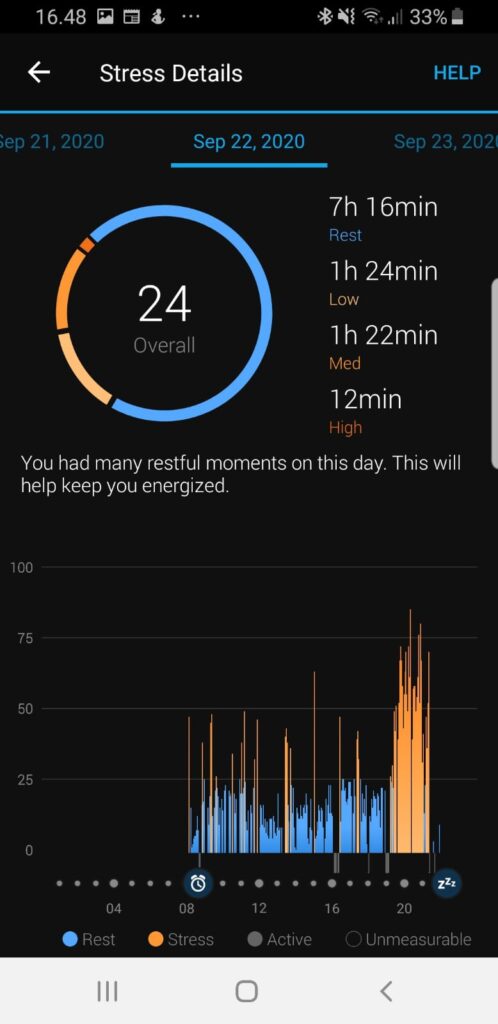
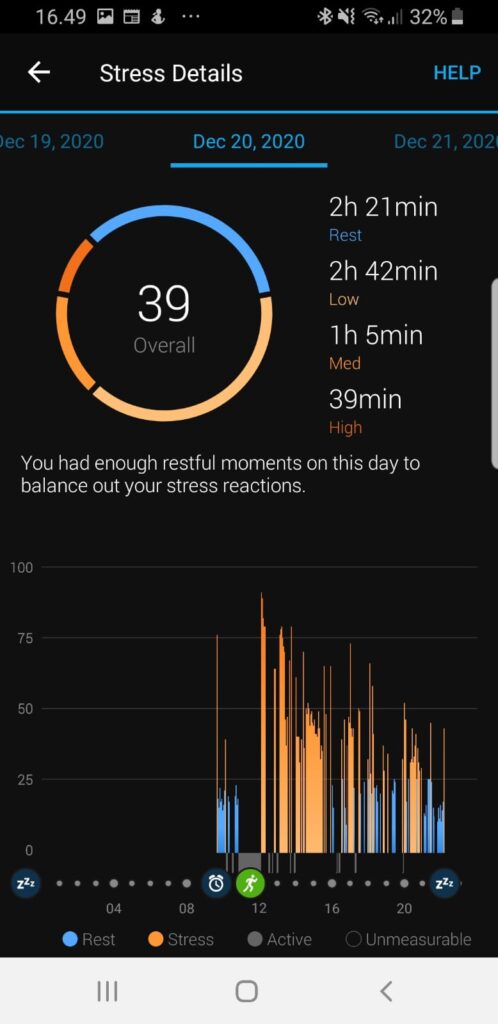
We can see that on a normal chill day, my stress levels were low. In the improv example, there is a steady orange graph from 19.15 onwards. My stress levels were above 50, and a few times, even above 75. This measurement is based on first beat technology – it measures HRV, but it’s not comparable with Oura values. I also chose 1-hour run; for example, there we can see an orange graph that has a downward trend as I’m recovering from the run.
Based on this, we can conclude that my stress levels (HRV) during improv are in the same range as after 1-hour run. I present the following hypothesis:
Data analysis from Oura data
I collected 17 days of data (days that I had improv in the evening). If my hypothesis is correct, we might see it from 17 days of data.
We will compare data in 3 groups: Night after Improv, second day-night, and my overall averages. In brackets, I compare the difference to overall averages.
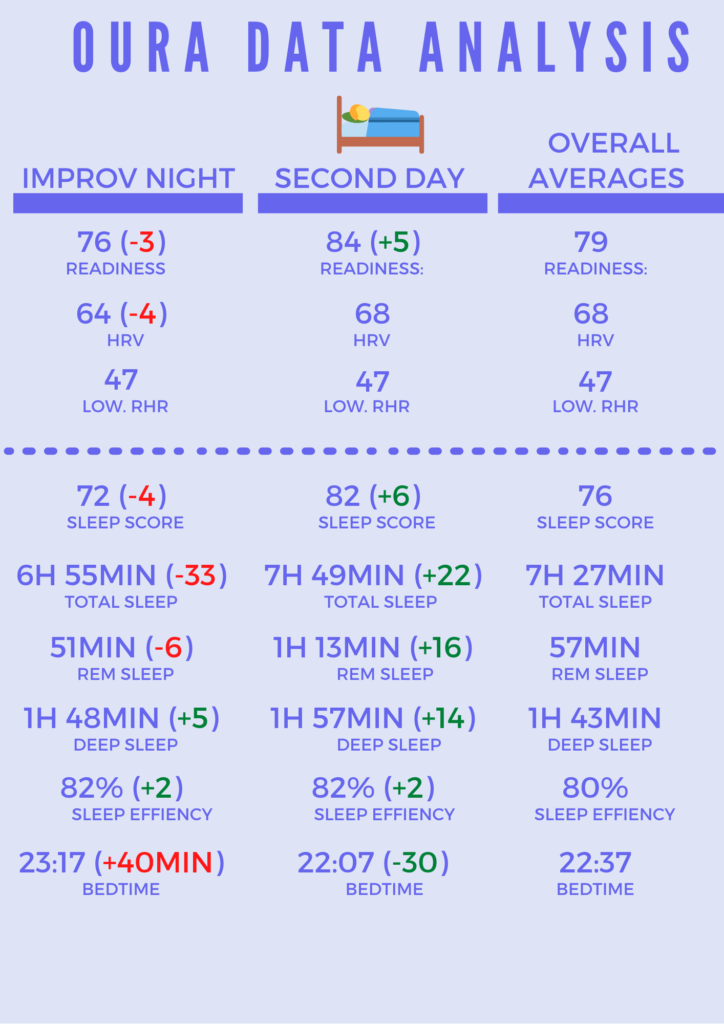
At first glance, there seem to be many red numbers (metric goes “unhealthy” direction) in the night after improv. Similarly, the second night is filled with green numbers (metric goes healthy direction). That being said, I cannot accept my earlier hypothesis without further investigation.
Problem with hypothesis #1 (stress spike will have a negative impact on sleep and recovery)
The average bedtime was 23:17 on improv night’s, 40 minutes later than normal. Does late bedtime cause decreased readiness score, HRV, and sleep score? To investigate this, I analyzed Oura ring data in the cloud (Must tool if you want to analyze your Oura data properly, link here)
There’s no big difference on HRV, REM & deep sleep in improv nights, and overall averages. It could be that bedtime has more effect than stress spike. I take this as good news!
Hypothesis #2 - There was recovery but not in the readiness metrics
My REM and deep sleep increased on average, 14, and 16 minutes. Interestingly, there was no correlation between bedtime and deep sleep time in overall data, and with REM sleep, it had a weak negative correlation. There was no hyper recovery (HRV spike) that happens the day after the hangover or hard physical training. I take that as good news also!
It could be that my body needs (and gets) more REM and deep sleep after a stressful previous day, or it’s just variance from 17 days of data. Nevertheless, it’s good that second-day recovery metrics are aligned with overall averages, and there seems to be an increase in REM and deep sleep.
Conclusion and key takeaways
I was happy to find out that my hypothesis wasn’t correct – I have overestimated the effects of stress on my body. Simultaneously, this is also a great opportunity to view stress and anxiety differently. You cannot escape them, but you can look at them differently: more positively and mindfully.
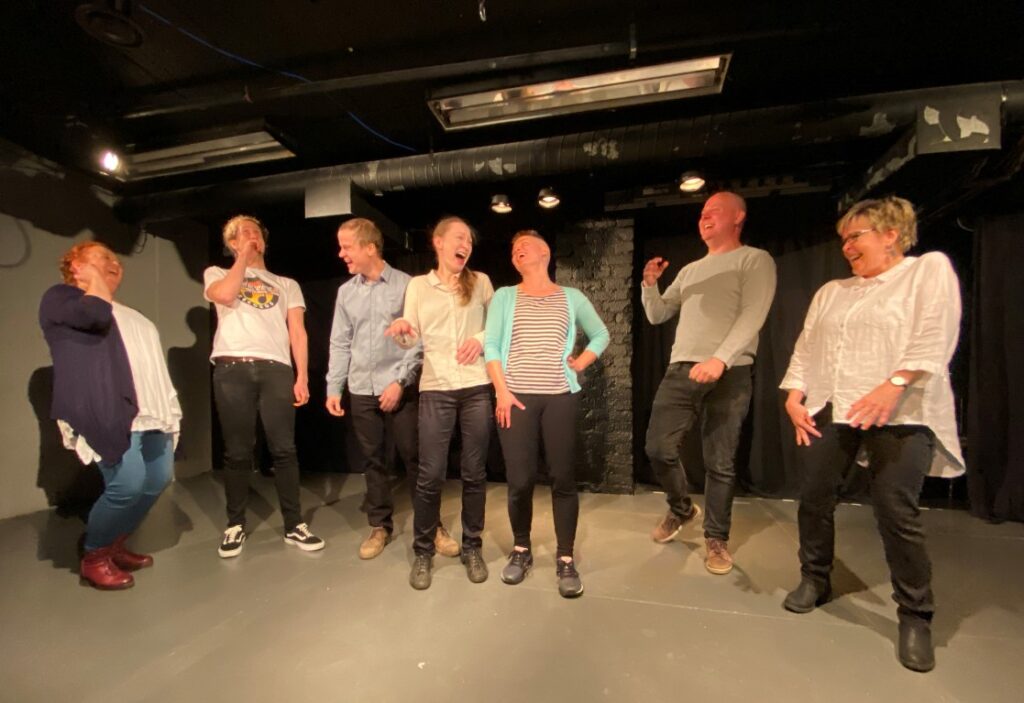

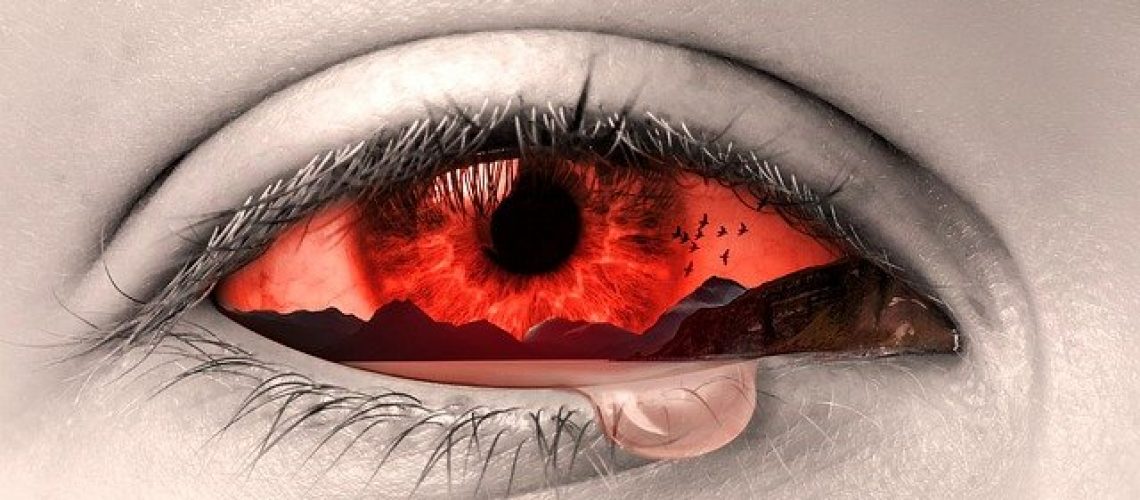
This Post Has 3 Comments
“Both sleep score and readiness score have a moderate negative correlation with bedtime (as bedtime gets later, scores drops). With HRV, there is a weak negative correlation.”
”Both sleep score and readiness score have a moderate negative correlation with bedtime (as bedtime gets later, scores drops). With HRV, there is a weak negative correlation.”
I can think of one reason for this correlation. Timing is one of the key factors that affect sleep score, and you usually get a higher timing score when you go to sleep earlier. And readiness is also correlated because sleep has so big effect on readiness score.
Thanks for the comments Tero and you are right. I would have expected more difference on Improv night numbers and averages but seems like they can all be explained with bedtime.